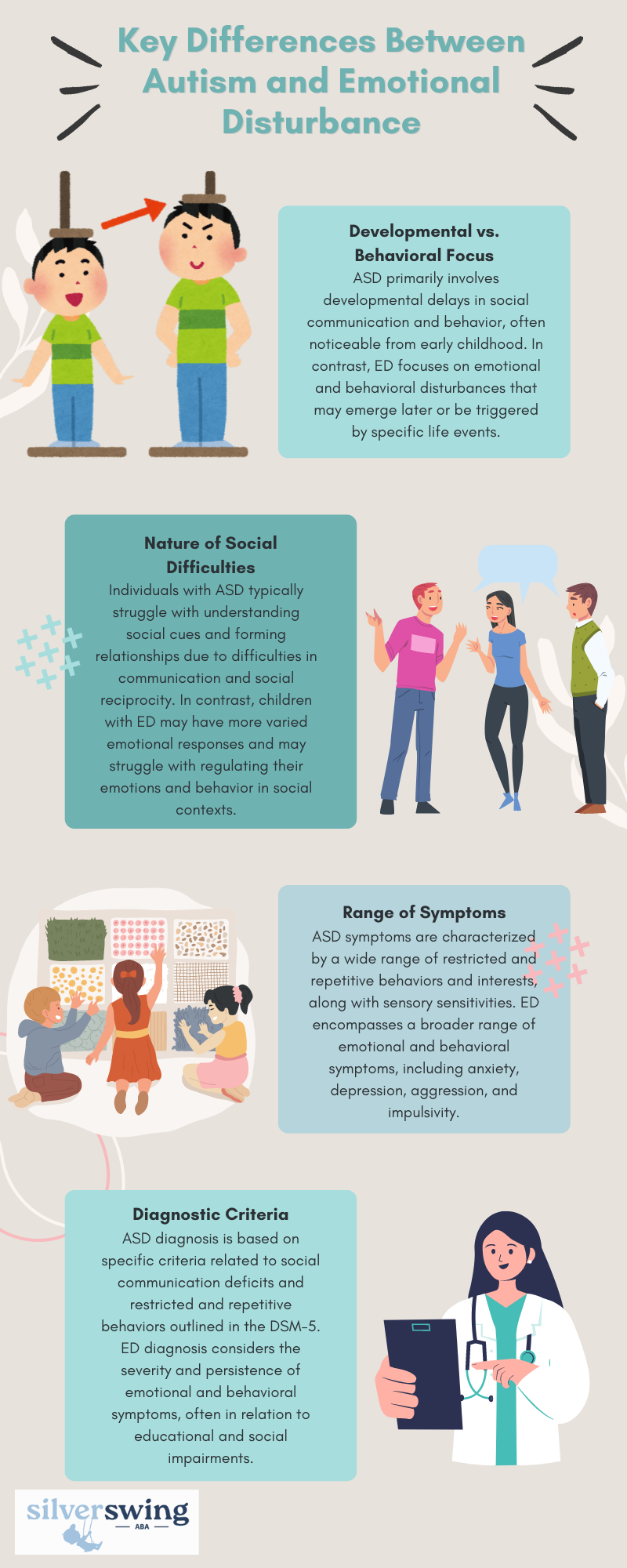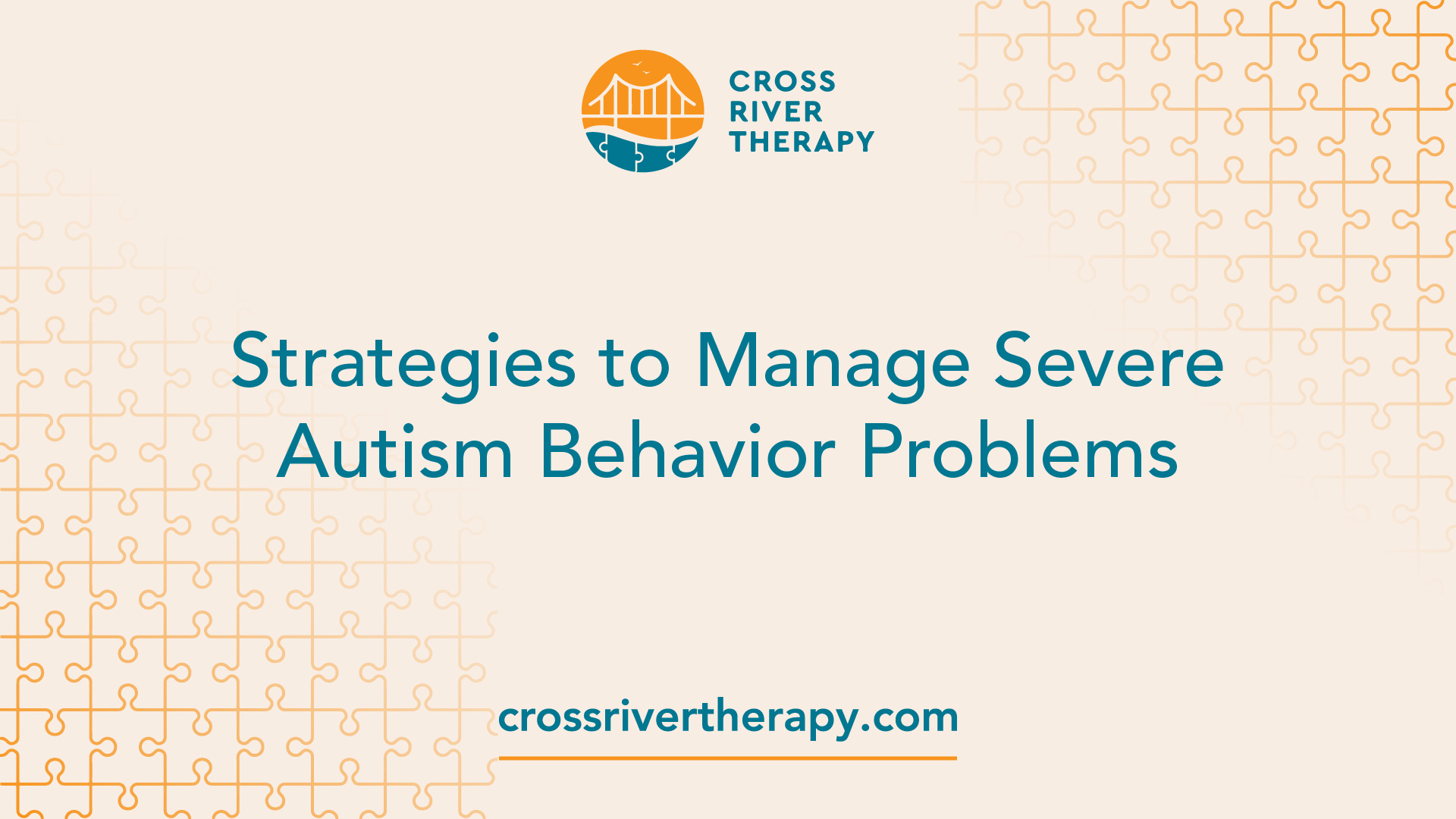Secret Indications and Signs to Recognize in Individuals With Behavior Autism
When you encounter someone with behavior autism, recognizing vital indications and symptoms is important. Additionally, sensory sensitivities can lead to frustrating experiences.
Difficulties in Social Communications
When you connect with somebody on the autism spectrum, you could notice they deal with social hints and communication. These difficulties can make social communications really feel frustrating for them. You might see them avoiding eye call or standing also close or also far away throughout discussions, which can produce misunderstandings. They might not notice body language or face expressions, making it harder for them to evaluate just how others are feeling.
Additionally, you might find that they like routines and familiar settings, which can restrict their readiness to involve in brand-new social circumstances. When they do engage, they may speak about their rate of interests in great detail without noticing if you're interested. This can cause discriminatory discussions that leave you really feeling detached. Comprehending these difficulties can aid you come close to interactions with compassion and patience, cultivating a more comfy environment for both of you.
Problem With Verbal and Non-Verbal Interaction

Recognizing these indicators is crucial, as it aids you far better support and involve with individuals on the autism spectrum. By recognizing their communication obstacles, you can promote much more meaningful links and provide a more helpful atmosphere.
Recurring Behaviors and Routines
Communication difficulties typically go along with other signs of autism, such as recurring actions and a solid preference for regimens. You could observe that people with autism usually involve in certain, repeated activities, like hand-flapping, shaking, or repeating expressions. These behaviors can supply convenience and a feeling of control in an usually overwhelming globe.
When they comply with a structured timetable,Regimens are similarly crucial; lots of individuals prosper. You may locate that changes to these regimens can result in significant distress. For instance, if they have a daily routine of eating morning meal at a specific time or adhering to a certain path to institution, any type of interruption can trigger anxiousness.
Identifying these patterns aids you comprehend their behavior and give support. By accommodating their need for regular and permitting repeated activities, you can create an extra comfortable setting that alleviates their difficulties.
Sensory Sensitivities

Typical Sensory Triggers
Sensory sensitivities can substantially impact day-to-day live for people with autism, as specific stimuli typically set off overwhelming responses. Common sensory triggers include loud noises, brilliant lights, and solid smells. You might observe that sudden noises, like alarms or alarms, create anxiousness or distress. Likewise, fluorescent illumination in shops can really feel harsh and uncomfortable. Structures can likewise play a significant function; harsh materials or specific food appearances may be excruciating for you. Additionally, crowded locations can overwhelm your senses, making it difficult to concentrate or kick back. Understanding these triggers can help you manage your environment better. By knowing what impacts you, you can take steps to minimize pain and boost your daily experiences.
Behavioral Responses Described
Recognizing your behavioral reactions to sensory level of sensitivities is vital, as they typically disclose just how you connect with the world. You could observe that particular noises, lights, or appearances bewilder you, resulting in stress and anxiety or discomfort. When confronted with these stimulations, you might take out, cover your ears, and even react boldy. These responses aren't just quirks; they're your means of handling overstimulation. You may likewise discover on your own looking for specific sensory experiences, like deep pressure or peaceful atmospheres, to aid ground on your own. Acknowledging these patterns assists you understand your needs far better and can assist how you interact them to others. By acknowledging your sensory sensitivities, you can function towards creating a setting that really feels a lot more workable and comfortable for you.
Coping Methods Summary
Acknowledging your sensory level of sensitivities is just the very first action; now it's time to discover coping approaches that can assist you take care of those experiences successfully. Begin by producing a sensory toolkit customized to your needs. Developing a structured routine can also supply predictability, minimizing anxiety around sensory overload.
Restricted Rate Of Interests and Focus
While several people develop a vast array of passions, those with autism usually demonstrate limited passions and an extreme concentrate on particular topics. You might observe that someone with autism can invest hours diving into their favored subject, whether it's a certain kind of train, a specific film, or a scientific idea. This intense emphasis isn't simply a pastime; it can end up being a central part of their identification and social interactions.
You might discover that discussions revolve around these interests, and they might struggle to involve in more comprehensive topics. By comprehending and acknowledging these limited interests, you can promote an encouraging setting where they feel valued and recognized, allowing for even more purposeful links and interactions.
Emotional Policy Difficulties
Individuals with autism frequently encounter obstacles in emotional policy, which can be affected by their extreme concentrate on certain interests. You might see that when an individual is deeply participated in a recommended activity, they can view website experience strong feelings, whether exhilaration or aggravation. When things don't go as prepared., this strength often makes it tough for them to change equipments or handle their feelings - Autism Spectrum Therapies.

Irregularity in Developing Turning Points
When it involves developmental turning points, you'll see that individuals with autism frequently reveal a wide variety of variability. Some might hit milestones in a timely manner, while others may drag or development at a different pace. You might see a kid excel in language abilities but battle with social communications. This inconsistency can be confusing, as traditional criteria do not constantly apply.
It's important to recognize that each individual's trip is special. Some might create intricate skills early, just to face challenges in the future. Others may take longer to attain fundamental milestones however then prosper in certain areas. Observing these patterns can assist you understand their strengths and requires much better.
Regularly Asked Inquiries
Exactly How Is Autism Diagnosed in Children and Grownups?
To identify autism in grownups and kids, professionals review actions, communication skills, and social communications. If a private meets the standards for autism spectrum condition., they typically use standard tests, meetings, and observations to figure out.
Are There Various Sorts Of Autism Range Disorders?
Yes, there are different kinds of autism range disorders, consisting of Asperger's syndrome and pervasive developmental disorder-not otherwise specified. Each kind varies in extent and qualities, so understanding these differences can help website here you much better assistance individuals with autism.
What Treatments Are Effective for People With Autism?
When considering reliable therapies for individuals with autism, you'll locate options like Applied Actions Evaluation, speech treatment, and job-related therapy. Each technique can aid improve communication, social abilities, and daily working customized to specific needs.
Can People With Autism Lead Independent Lives?
Yes, people with autism can lead independent lives. With the right support, abilities training, and sources, you can help them establish self-sufficiency, take care of day-to-day tasks, and flourish in different settings, fostering their self-reliance.
Just How Can Family Members Support Loved Ones With Autism?
You can support your enjoyed ones with autism by producing a structured setting, motivating their interests, exercising patience, promoting communication, and promoting social skills. Commemorate their success, despite how little, and develop a helpful area.
Although several people on the autism range can recognize and make use of language, they often face considerable difficulties with both verbal and non-verbal communication. Recognizing these indicators is necessary, as it aids you much better support and engage with individuals on the autism range. You could notice that people with autism usually involve in certain, repeated actions, like hand-flapping, shaking, or repeating phrases.Sensory sensitivities can considerably influence daily life for people with autism, as particular stimuli commonly activate overwhelming responses.When it comes to developing turning points, you'll discover that individuals with autism often reveal a wide range of irregularity.